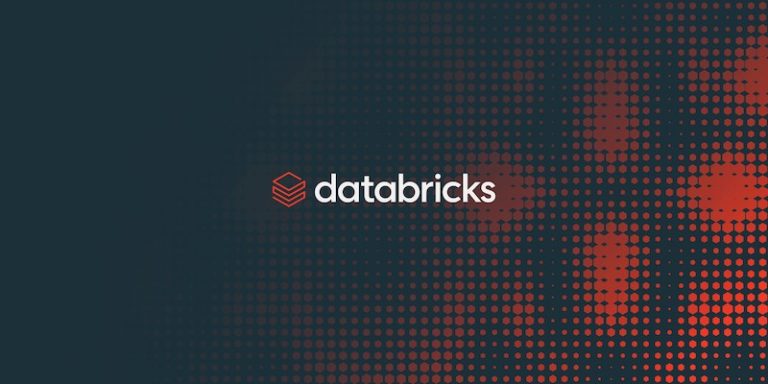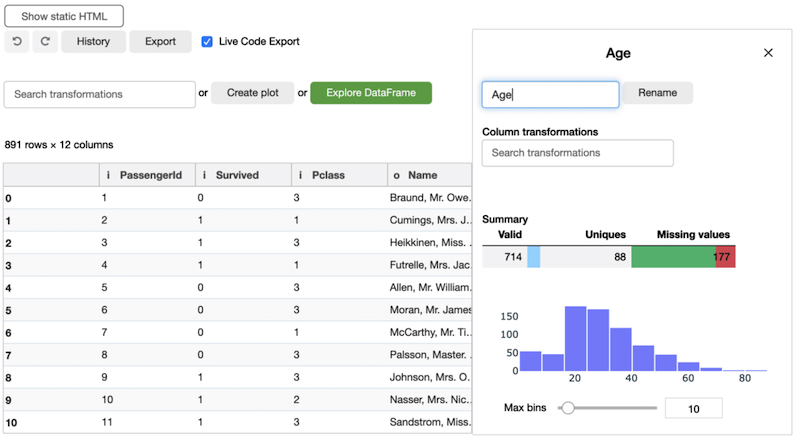
Dubbed the “Data and AI company”, Databricks is a pioneer in data lakehouse architecture. In October, the company completed the acquisition of 8080 Labs, a German startup specializing in Low Code/No Code and the originator of Bamboolib, a popular user interface-based data science tool. This acquisition will allow Databricks to evolve its lakehouse architecture and to pursue its commercial development as well as its expansion in Europe with the upcoming opening of an R&D center in Berlin.
Databricks had a busy autumn with the strategic acquisition of 8080 Labs. This German startup has made a name for itself with its flagship product, Bamboolib, a popular UI-based data science tool that enables rapid data exploration and transformation with just a few clicks and no code. All of these UI-driven features will soon be integrated into Databricks’ Lakehouse platform.
“We are pleased to welcome 8080 Labs to our team as we accelerate the adoption and accessibility of the lakehouse, the data architecture of the future,” said Ali Ghodsi, Co-Founder and CEO of Databricks.
“With the acquisition of Redash last year, we are expanding our user base to a broader audience who prefer low-code/no-code solutions. Adding simple functionality to Databricks is a crucial step in enabling the largest number of people within an organization to easily analyze and explore large volumes of data, regardless of their expertise.”
Bamboolib, 8080 Labs’ flagship product, indeed aims to make it easy for citizen data scientists to perform no-code workflows while seamlessly integrating with the Python ecosystem and generating production-ready code in the background.

With this acquisition, Databricks hopes to allow the greatest number of people to discover, in just a few clicks, exploitable information from their data. The company wants to mark its expansion of the company into the low-code/no-code space and broaden the accessibility of its lakehouse platform to a wider audience of citizen data scientists and data team members, thus promoting the democratization of data and AI throughout the enterprise.
“We founded 8080 Labs to bring simplicity to complex data operations and to make the power of data science and machine learning accessible to data teams regardless of their skill set,” said Tobias Krabel, co-founder of 8080 Labs.
“With open source roots and an incredible vision to reshape the data landscape with the lakehouse architecture category, we see endless opportunities with Databricks and couldn’t be more excited to join Databricks on this journey.”
Bamboolib’s no-code features will soon be integrated with new offerings such as Auto ML and other visualization and dashboarding products to extend Databricks’ simple UI-based functionality to the entire lakehouse platform. The goal is to make it more accessible and easier to use for both experts and data scientists. Now anyone with a very basic understanding of data science can train advanced models on their datasets.
Citizen data scientists play a critical role in a company’s ability to streamline and industrialize ML at scale. In doing so, they bridge the gap between analysts and highly specialized data scientists in designing relevant models that can impact all areas of the business.
As data and AI become a strategic priority for companies of all sizes, it is crucial that everyone in a company is able to ask questions and take action based on data. While many tools for data scientists offer only exploratory capabilities, the 8080 Labs acquisition, combined with Databricks’ AutoML “glass box” approach, was designed to allow everyone to perform complete data operations with ease, from analysis to data transformation and machine learning workflows. The platform automatically generates high-quality, optimized code in the background so that data teams can easily put their key observations and results into practice, without having to ask expert engineers to re-implement the process for production.
The acquisition reinforces Databricks’ commitment to fostering a global culture of innovation and is its latest addition to a growing group of talented engineers in EMEA. Earlier this year, the team at Cubonacci, an Amsterdam-based data science solutions startup, also joined Databricks to support the development of scalable and secure data warehousing and machine learning capabilities; Amsterdam is now home to Databricks’ second largest engineering center. Databricks recently raised ![]() 38 billion to help the company accelerate the adoption and development of its lakehouse platform globally and invest in building global talent across all regions.
38 billion to help the company accelerate the adoption and development of its lakehouse platform globally and invest in building global talent across all regions.
Translated from Databricks annonce le rachat de 8080 Labs, expert en Low-code/No-code pour étendre sa plateforme Lakehouse









